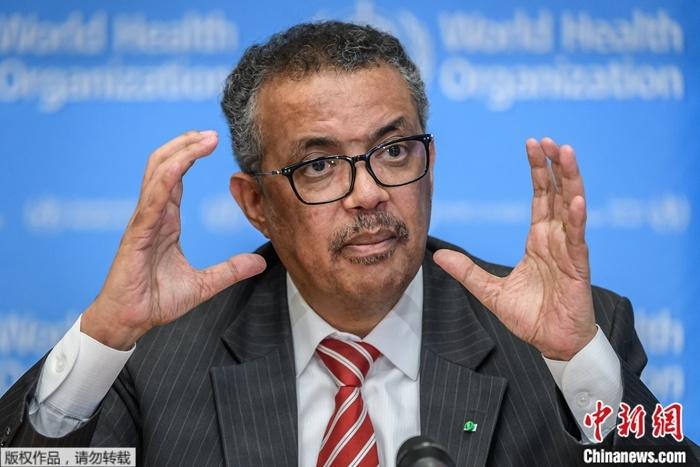China News Agency, Beijing, May 14 (Geneva): According to the latest data released by the World Health Organization on the 13th, there were more than 4.17 million confirmed cases of new coronary pneumonia worldwide and 290,000 deaths. WHO Director General Tan Desai said on the 13th that inequality in access to quality health services has become one of the key factors leading to the pandemic.
Data map: World Health Organization Director General Tan Desai.
In preparation for defending against threats, Tan Desiti "two major constructions"
According to a report on the WHO's official website on the 13th, Tan Desai said at the epidemic media briefing held on that day that countries around the world have failed to fulfil the promise of everyone's health, and inequality still exists in access to health services. "This pandemic shows that the best way to prevent the outbreak and other health threats is to be prepared, including investing in a strong health system and primary health care services."
"The health system and health security are closely linked." Tan Desai emphasized that without investing in these two areas, the world will face serious consequences not only in the health sector, but also in the social, economic and political fields. Tan Desai said that the World Health Assembly will be held next week, and the participating leaders will discuss how to overcome the epidemic and build a stronger health system around the world.
In addition, the World Health Statistics Report 2020 released by WHO on that day emphasized the progress made in the field of health and global development goals. However, the epidemic caused major loss of life globally, making the sustainable development goals impossible to achieve.
Tan Desai also urged countries to strengthen various prevention and control measures against vulnerable prisoners in prison. Tan Desai said that it is not enough to take sanitary measures against the outbreak in a closed environment. He emphasized that countries should ensure that the identification and implementation of outbreak prevention and response measures in a closed environment are consistent with basic human rights, and that they should be guided by WHO ’s guidance and recommendations for protecting the health of personnel.
The virus may never disappear
At the regular press conference that day, Michael Ryan, WHO health emergency project leader, said that the new coronavirus may become a long-term problem, and it is difficult to predict when it will be defeated. Ryan took AIDS as an example and pointed out that although HIV has not disappeared, humans have found treatment and prevention methods. He expressed the hope that highly effective vaccines can be developed and distributed to the people of all countries.
Kokhov, technical director of the WHO Health Emergency Program, said that some countries have proved that public health can control the virus, curb its spread to low levels, and return society to normal.
Michael Ryan also emphasized that the measures to lift the blockade should be cautious, otherwise it may fall into a "blockade cycle". Shui On pointed out that the risk level of the outbreak will be assessed and the risk level lowered, but before having a stronger health system to deal with possible relapses, WHO believes that the outbreak still poses a high risk to the world and all regions and countries. Tan Desai also suggested that countries maintain the highest level of early warning of risk, and any measures should be carried out in phases taking into account the actual situation. (Finish)

